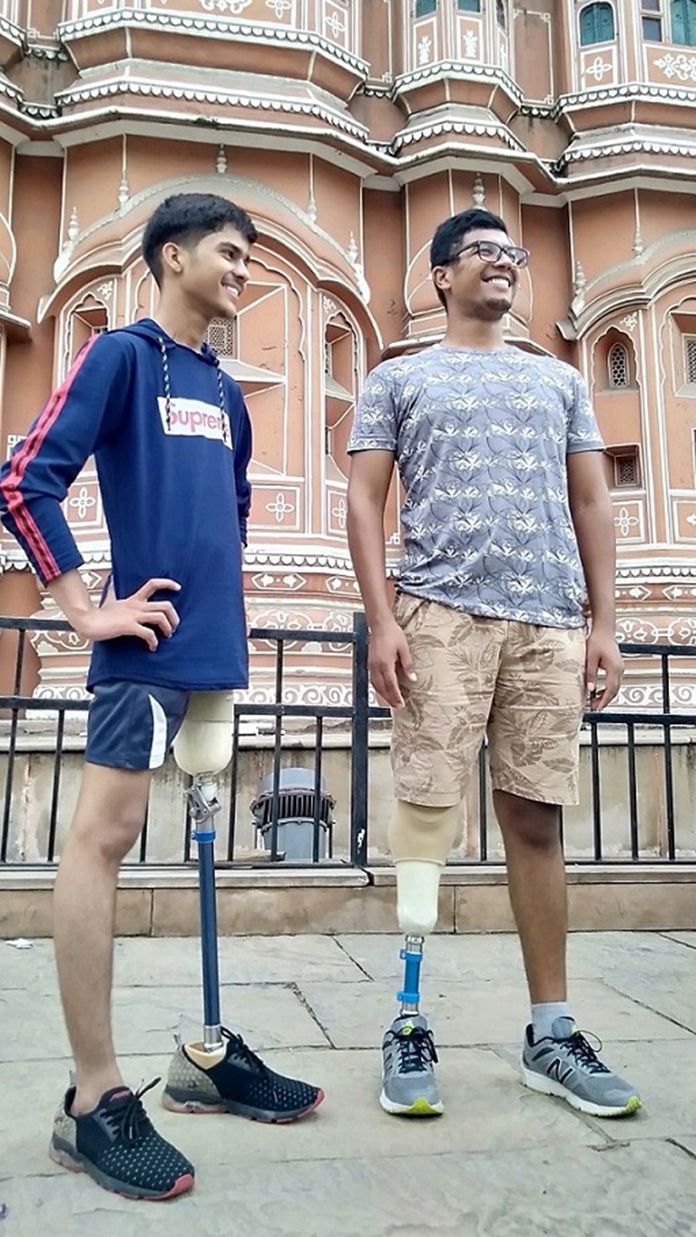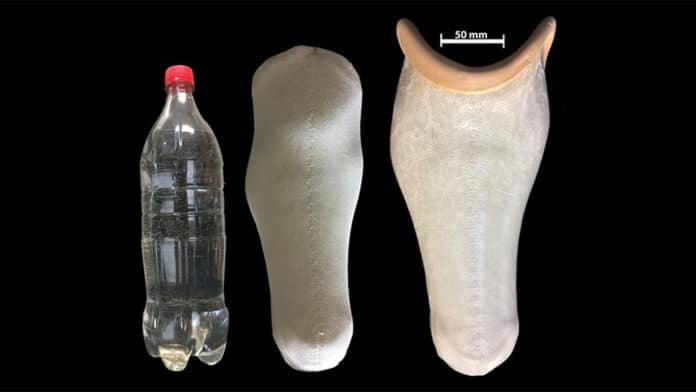Most currently available prosthetic limbs tend to be lacking in functionality or are unaffordable to many who need them. Alongside this need for prosthetic limbs, plastic pollution in less developed or developing countries is a major issue; it is particularly high due to the lack of recycling resources.
One of its biggest contributors is the plastic bottles which cannot be recycled and reused for the same purpose. So, we need to find new uses of them.
In order to solve these two major problems, researchers at De Montfort University, Leicester (DMU) have come with an amazing solution. They discovered that plastic bottles could be turned into prosthetic limb sockets, which are much more lighter and cheaper than existing ones.
Dr. Karthikeyan Kandan, who has spent most of his career designing materials for bullet-proof vests, found that if he ground-up plastic water bottle waste, the resulting material could be spun into polyester yarns that are ten times stronger than bulk plastic used in some existing prosthetics. These yarns can be then heated and molded into prosthetic sockets.
It reduces the risk of infection because of its breathable design. Each unit made from ground-down plastic that might otherwise have ended up in land-fill or the ocean costs just £10, which is also 500 times cheaper than the standard price of £5,000 (approx. US$6,000).
“Upcycling of recycled plastics and offering affordable prosthesis are two major global issues that we need to tackle,” Dr. K. Kandan said. “We wanted to develop a prosthetic limb that was cost-effective yet comfortable and durable for amputee patients.”

He and his team then went to India and tested their artificial legs with new sockets on two patients – one who had his leg amputated above the knee, and another whose leg was amputated below the knee.
“Both patients were really impressed – they said the prosthetic was lightweight and easy to walk with, and that it allowed air to flow to the rest of their leg, which is ideal for the hot climate in India,” explained Dr. Kandan.
Dr. K Kandan is now preparing for an international trial of his design so that it can be adapted to meet patients’ individual circumstances.
“Our design has significant potential to promote the circular economy for plastic by using recycled plastic yarns for manufacturing affordable prosthetic limbs – especially for amputees in developing countries,” added Dr. Kandan.
